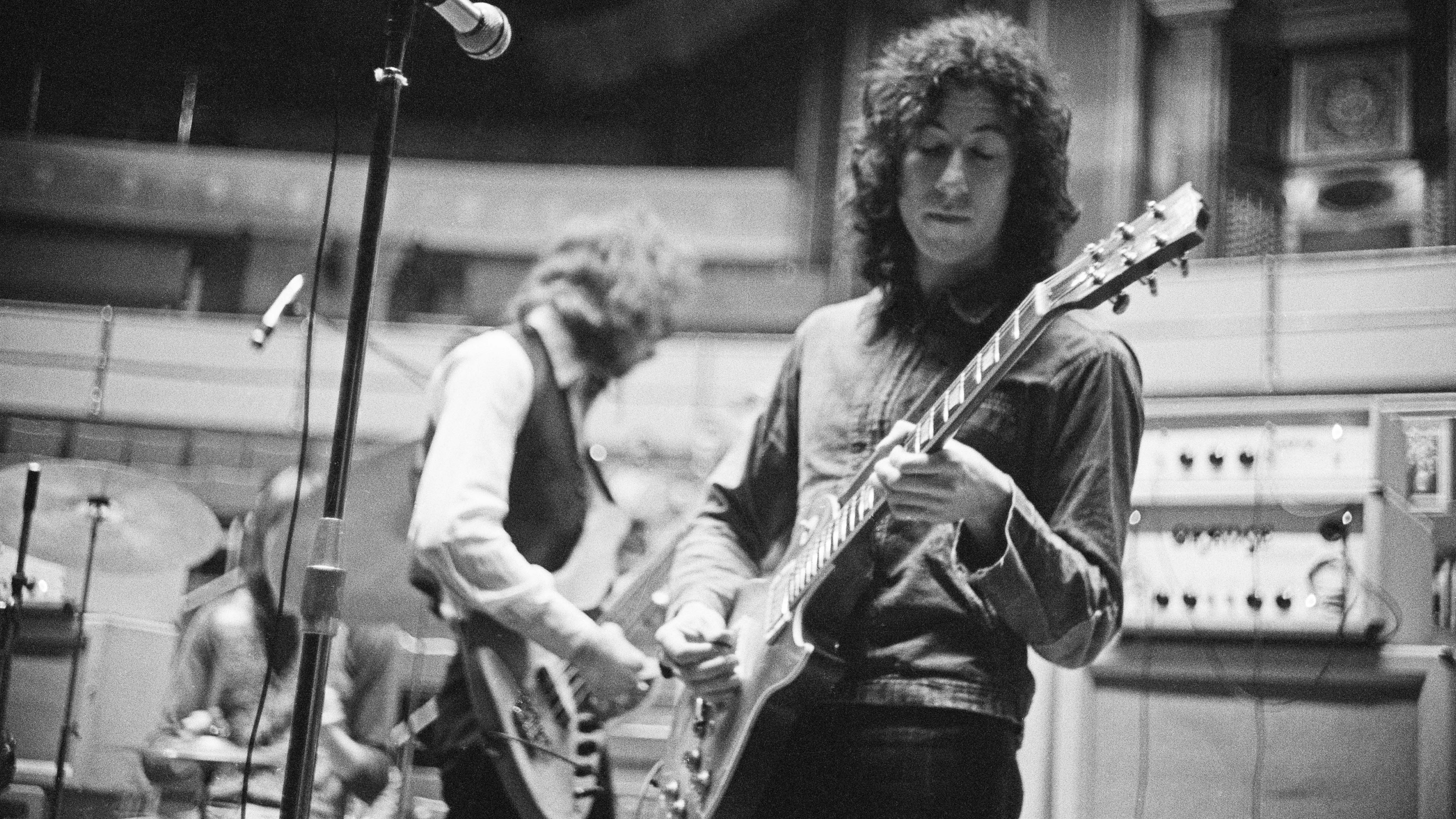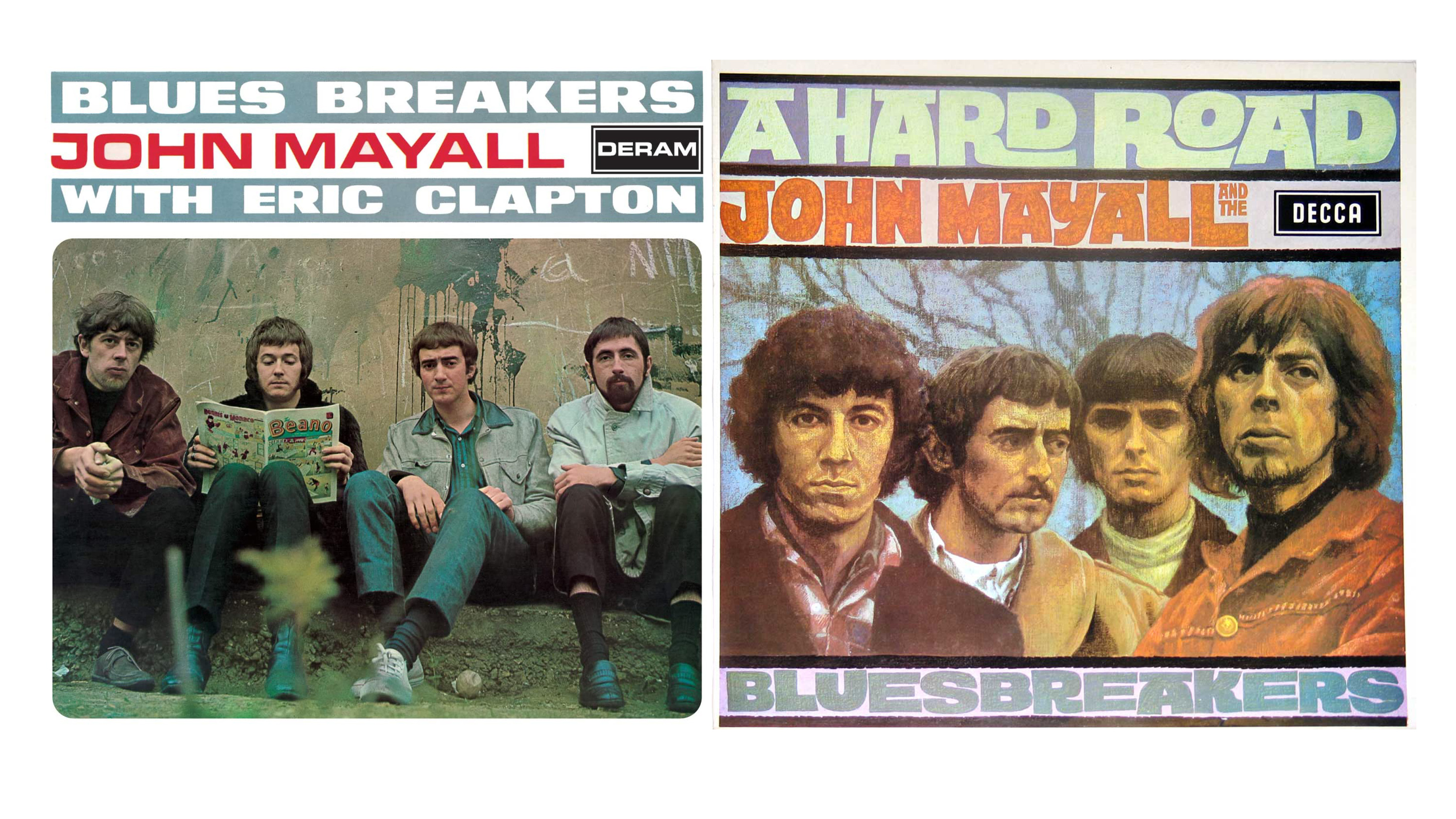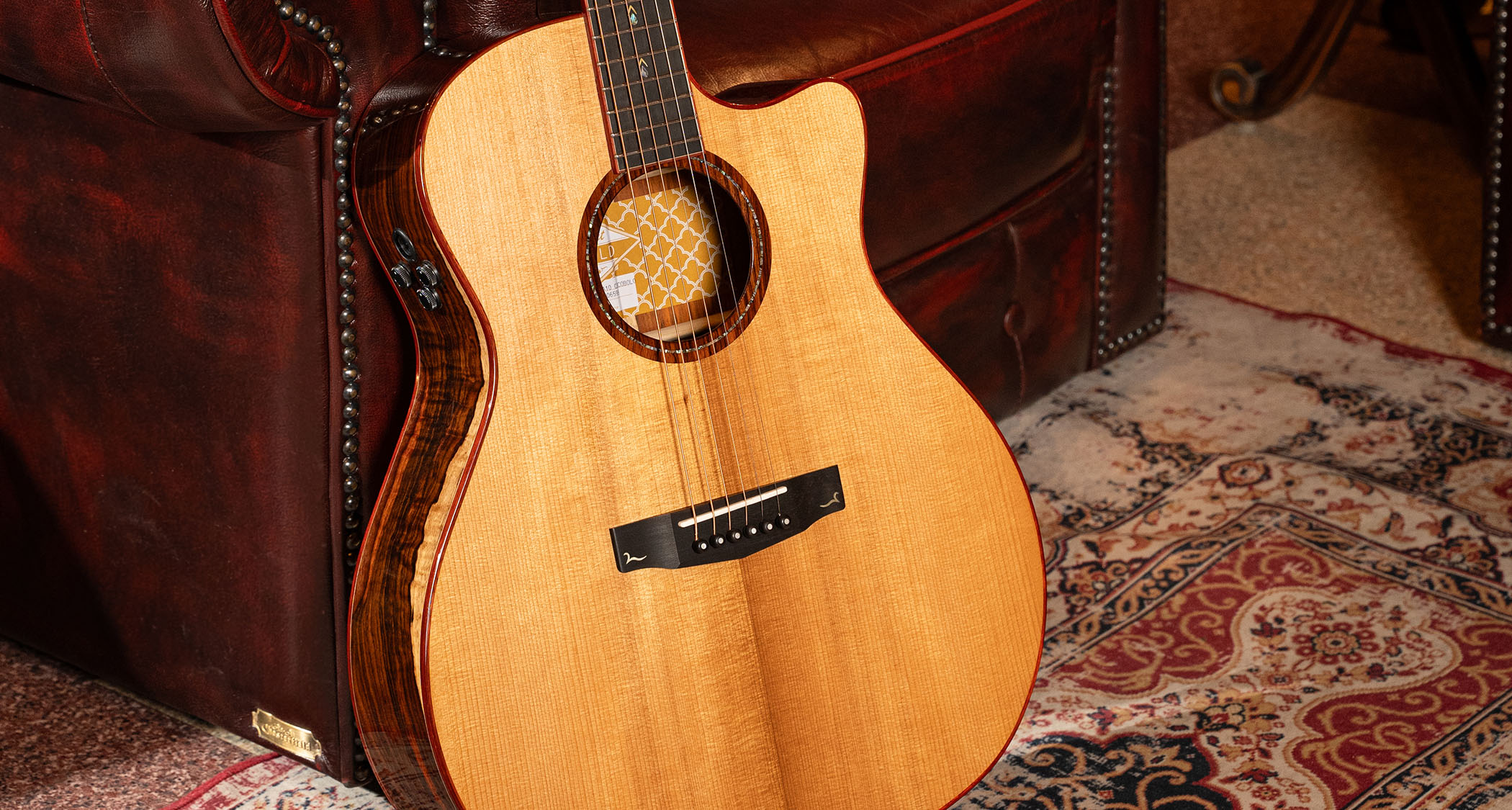"The first one's not necessary": Why Peter Green dismissed his greatest blues-rock Fleetwood Mac song as a mere intro to a greater piece – one that would later intimidate even David Gilmour

The Peter Green story is one of greatness and what could have been, but investigating the musical legacy of one of the finest guitar players and blues songwriters the world has seen unearths some surprises. At the top of the pile is the fact he dismissed one of his greatest achievements… or at least the first half of it.
Fleetwood Mac's Oh Well (Pt. 1) has recently been revisited by Slash with Chris Stapleton – a timely reminder that it houses not just an all-time great riff from Green, but the dynamics of a truly great songwriter. However, just as its name suggests, its blues-rock greatness is only half the story.
Oh Well was never included on a Fleetwood Mac UK studio album – the single release appeared on the US version of 1969's Then Play On album, though later became a staple of Mac compilations. It followed the release of another Green single-only classic; the meditative Man Of The World that showcased just how rapidly the guitarist and vocalist was developing as a musician with ambitions that transcended his blues roots
Green had never intended the first part of Oh Well to be the main event or even a single at all – when it became clear the band wanted to put it out its songwriter envisioned it as the b-side to the very different second half, Oh Well Pt.2.
"The first one's not necessary," the guitarist reflected in the interview footage above. "The first one did almost get to number one, Part one, Part two is the only real offering. On a compilation, I wouldn't put part one on. I call it packing to know how to get to that second one – to how to start it off maybe.
This may come as a shock to the many guitarists who were inspired by one of the greatest blues-rock compositions of all time, including a perhaps unlikely candidate.
He's the best British blues guitarist out of them all
Noel Gallagher
"On Grenada television in Manchester, they used to have these things on at about 2 in the morning that were called Five Minute Profile of all these artists like Bowie and T-Rex and all that," Noel Gallagher recalled to the BBC about discovering his favourite blues player. "And because we were all on the dole [we'd put it on] and get stoned. I remember there was one on Fleetwood Mac and right at the beginning of the five minutes, it was maybe a 30-second thing that Fleetwood Mac [then] was born out of the ashes of Peter Green's Fleetwood Mac and they showed some black and white footage of him playing Oh Well. I remember the guitar riff and thinking, fucking hell that's amazing!"
Get the MusicRadar Newsletter
Want all the hottest music and gear news, reviews, deals, features and more, direct to your inbox? Sign up here.
As Gallagher dug deeper, he was taken with the emotive dimension of Green's playing.
"For my mind anyway he's the best British blues guitarist out of them all. And I'm not a wizard on the guitar and I don't know any of the technical terms and all that but his guitar playing, it fucking blows me away. Not in the same way as Hendrix. You listen to Hendrix and you go, 'The guy's a wizard', Peter Green's guitar, it weeps almost."
But the second part of Oh Well doesn't even feature any of that. It showcases a different side to Green's compositional talent; a musician seeing a broader sonic picture outside of rock conventions.
"I listen to a lot of classical music, Vaughan Williams, Gustav Mahler, Tchaikovsky, Parudin, and I like Stravinsky very much," Green told the NME in 1970. But when asked if any of this listening had surfaced in his own music, the musician named only one example: "It showed up in the second part of Oh Well", noted Green. "Parts of that I suppose are classical."
Perhaps this is why he was so keen to showcase the instrumental over the more commercially viable first part; it reflected a passion he hadn't been willing or able to capture before. Mick Fleetwood himself would later describe his bandmate's piece to Rolling Stone as a "classical-esque escapade."
Guitars still form an important part of the 5:39 minute piece that; beginning with a mournful Ramirez nylon-string guitar chord part, then accompanied by low notes of an electric guitar before cello and recorder played by then-girlfriend Sandra Elsdon and piano from Fleetwood Mac bandmate Jeremy Spencer. All other instrumentation was tracked by Green.
One of the best, if not the best
John McVie
The result has a cinematic scope that isn't as unexpected as one would imagine in the context of the instrumental Albatross the year before, but further enhances the view that Green was coming into his own as a musician with grander ambitions than sateing the blues guitar crowd.
"One of the best, if not the best," reflected bandmate and Fleetwood Mac co-founder bassist John McVie. "That's why it's such a tragedy that it all went where it did. He could have been so much more."
Despite Green's dismissal of Oh Well Pt. 1, it continues to resonate and fascinate. And even the guitarist himself admitted revisiting the track as a listener gave him a new appreciation of its lyrics.
"This is to do with Jesus, the Jesus thing," Green reflected in the top video above regarding the song's second verse. "Because he says, 'We all fall short of the glory of god. The pamphlets that they hand out – 'We've all sinned and we all fall short of the glory of god'. That's what that bit means – that's quite good, quite clever. It's nice to revisit yourself."
I never really intended Oh Well to have the first section
Peter Green
The title itself though was a reference to Muddy Waters. "I took the idea for the lyrics from that old blues song by Muddy Waters about, ‘Oh well, if I was a catfish’, Green told Julian Piper for Guitar magazine back in 2007.
In that same interview Green reiterated his disappointment that Pt.1 would always be the better-known work. “I never really intended Oh Well to have the first section,” he complained, “I just wanted it to be the classical second side."
Nevetheless that first part stands as a brilliantly realised song, but while it's still been covered countless times by artists, the second part would never even be performed by Fleetwood Mac during or after Green's tenure with the band.
That was finally addressed at the Fleetwood Mac & Friends celebration of Peter Green that his close friend and bandmate Mick Fleetwood organised on 25 February 2020 in London. It was David Gilmour who took on the challenge of performing the instrumental as part of a collective of musicians including Fleetwood.
Gilmour added his own melodic touch on the Black Strat in place of Spanish guitar, but is Green's stature in the pantheon of players, even the Pink Floyd legend had his doubts before the performance.
David Gilmour said, 'At the moment I’m sort of passing on the idea'
Mick Fleetwood
"He initially got cold feet," Mick Fleetwood revealed to Rolling Stone in 2021 about the London Palladium performance and the long build up of calls and approaches that ensured an all-star cast of musicians would appear on the night. "He was like, 'I don’t know if I can interpret Peter’s work. It’s so amazing. Maybe I can’t do that.'
"I said, “What are you talking about? Of course you can,'" added Fleetwood. "He said, 'At the moment I’m sort of passing on the idea because of what I’m discussing with you here. But later on, if this happens, I may gather enough courage.' And at least a year and a half later, I called him back and he said, 'I’m ready and I really want to do this.' Which was huge."
Gilmour delivered on the night, as if there was ever any doubt. He interpreted Green's two most-loved instrumentals with Albatross and Oh Well Pt.2
"Peter never played it. Fleetwood Mac never played it," added Fleetwood. "That was really special that David picked that to do. I was overjoyed."

The first part isn't strictly true. A condensed version of both parts was 'performed' by Fleetwood Mac on iconic British TV music chart show Top Of The Pops in 1969 . But it barely does any justice for Green's remarkable vision for the two linked pieces.
The question of what Green could have done next with Fleetwood Mac if he hadn't left in 1970 hangs in the air. But so too does the question of who Peter Green was; as much as we try to push him into the spotlight as a player, it was something he possibly never wanted.
"Personally, Peter was good friend," Mick Fleetwood reflected with Rolling Stone in 2021. "And musically, he’s beyond reproach in terms of what he meant to me and John [McVie] and the original band. No doubt, as much as he tried to waylay and not be responsible for leading the band, the truth was, as much as he turned away from things, he could have been a Jeff Beck. He could have been a Jimmy Page. He could have been Eric Clapton.
"But right from the beginning, he wanted to be part of the band."

Rob is the Reviews Editor for GuitarWorld.com and MusicRadar guitars, so spends most of his waking hours (and beyond) thinking about and trying the latest gear while making sure our reviews team is giving you thorough and honest tests of it. He's worked for guitar mags and sites as a writer and editor for nearly 20 years but still winces at the thought of restringing anything with a Floyd Rose.
“Beyond its beauty, the cocobolo contributes to the guitar’s overall projection and sustain”: Cort’s stunning new Gold Series acoustic is a love letter to an exotic tone wood
Guitar Center’s massive Guitar-A-Thon sale has landed, and it includes $600 off a Gibson Les Paul and a host of exclusive models from Epiphone, Taylor, and more









